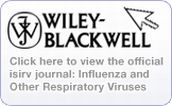Erik Karlsson, Deputy Head of Virology Unit, Institut Pasteur du Cambodge, Cambodia | Director, National Influenza Center of Cambodia | Director, Regional WHO H5 Reference Lab
During his doctoral work at, the Department of Nutrition at the Gillings School of Global Public Health, University of North Carolina at Chapel Hill, Dr. Karlsson delved deeply into studying the effect of nutrition on immune responses to viral pathogens - specifically the weight of diet-induced obesity on influenza infection. After completing his Ph.D and being awarded certificates for study in Translational Medicine and Field Epidemiology, he then began pursuing a research career focused on understanding the spread, evolution, and risks of viruses. Karlsson's postdoctoral and Staff Scientist work took place at St. Jude Childrens’ Research Hospital in Memphis, Tennessee. There he focused on research areas including virology, viral pathogenesis, co-infection dynamics, immunology, and global infectious disease surveillance at animal-human interfaces worldwide. Currently, Dr. Karlsson serves as the Deputy Head of the Virology Unit at the Institut Pasteur du Cambodge (IPC) in Phnom Penh, Cambodia. He is responsible for all ongoing activities related to seasonal and zoonotic respiratory viruses. He serves as Director of the National Influenza Center and Regional WHO H5 Reference Lab, and is Coordinator of a WHO COVID-19 Global Reference Laboratory. His personal work at IPC centres on improving surveillance of endemic and emerging viruses at high-risk interfaces. He utilizes novel surveillance technologies alongside traditional detection and genomic epidemiology methods to enhance Early Warning systems against future pandemics. Aside from his work in research and One Health, Karlsson frequently acts as a technical advisor and consultant for UN organizations like the FAO and WHO on topics such as novel surveillance, biosafety/biosecurity, laboratory development, genomic surveillance, and traditional food markets. He also serves on advisory groups for organizations such as the National Academies of Sciences, Engineering, and Medicine. Recognizing the global nature of pandemic threats at the animal-human-environment interface, Karlsson also founded CANARIES - a research consortium and think tank leveraging animal market networks for enhanced infectious disease surveillance and response.



